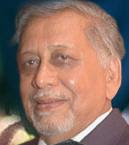Till the end of 2008 India had problem of rising prices. The inflation created havoc. It went out of control and both RBI and through monetary policy and Government of India through fiscal measures were busy controlling the inflation. The rising the price of crude oil brought in inflation and it was not possible for a while to control the inflationary pressure. But fortunately from the beginning of the New Year the effect of measures taken by RBI could be seen and slowly the prices started falling. All heaved a shy or relief when the first sign of falling inflation was noticed. But alas! The inflation fell rather rapidly.
The rate of inflation on 7th June 2008 was 11.66% say almost 12%. The end of January saw inflation coming down to 3.2%. At this point of time people in general and Economists in particulars were very happy. Even the Government felt relieved. But come last week of February the smile turned into a grin. The inflation came down to 2.43%. This was one of the lowest levels of inflation. Economist was not sure whether it is a good sign or signal of incoming turmoil. People were confused to see that prices of consumer goods have taken an upward trend. What is this? Price of potatoes and onions came up by 20% in the month of March yet the official figure of inflation has gone down. In fact inflation went down by 7th of March to0 .44%. Never in the history of modern India inflation have gone down to this extent. This time some of the economist started feeling whether the country is passing through a state of Deflation?
Montek Singh Alluhwalia stoutly defended that lower inflation does not necessarily mean a state of deflation. He felt that economy might register lower inflation some time but out of such trend of inflation would rejuvenate the economy by creating fresh demand. Though, on a few earlier occasions, we had not agreed with the views expressed by him on the rate of growth of economy yet this time we tend agree with his utterance. Yes, lower inflation does not necessarily meant a state of deflation. What is the e meaning of Deflation? In common usage, deflation is generally considered to be "falling prices" while Inflation is "rising prices". Actually this is "price inflation" as opposed to "monetary inflation".
However, every month some prices are rising while others are falling. So the inflation rate is a compilation of all of these factors. Currently, we have some major inflationary forces combined with some deflationary forces.
On the inflationary side we have rampant money creation, and rupee devaluation compared to other currencies. This is causing prices for food and energy to skyrocket.
On the deflationary side we have the sub-prime fiasco which is reducing liquidity for banks and causing housing prices to fall.
So there you have it, rising food and energy prices and falling housing prices... inflation and deflation at the same time. Many economist feel sooner of later the rate of inflation may come down to Zero. But do not panic. Zero inflation does not mean disaster. The countries like Austria, Switzerland have zero inflation but these are the country where price are greatly stable. One thing must be kept in mind though rate of inflation have reached 0.44% yet the real rate of inflation compared to last year is still higher, which does not get reflected in the maze of statistics. According to us the price will stabiles sooner or later. However Inflation affects the middle class harder because the prices of things they buy go up while their income stays the same. Generally, the Government walks a tightrope though; it cannot inflate all its debt away quickly, without destroying the economy, so it faces a constant balancing act.
I am not afraid of deflation as such. It would balance out soon. What I am afraid of is stagflation. The simple definition of Stagflation is a "stagnant economy coupled with price inflation". This would be dangerous for our economy.
blogcatalog
Subscribe to:
Post Comments (Atom)





No comments:
Post a Comment